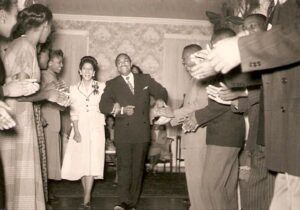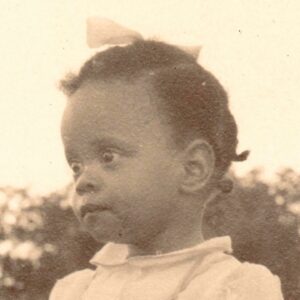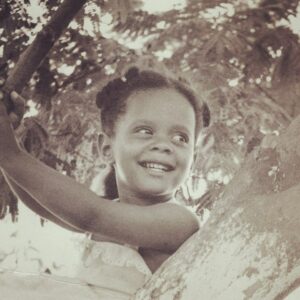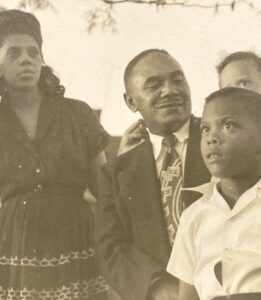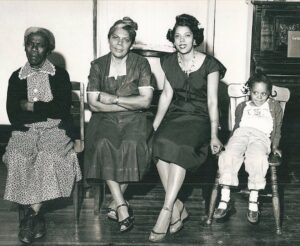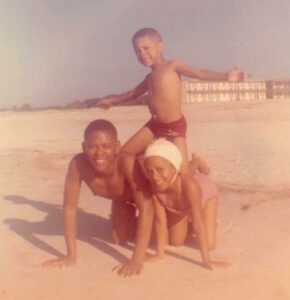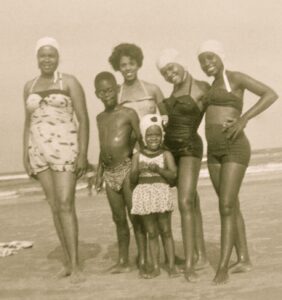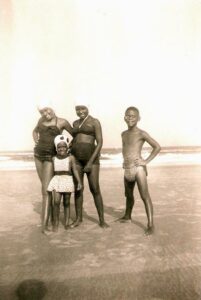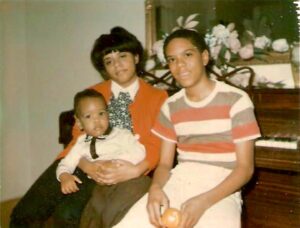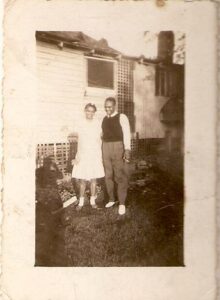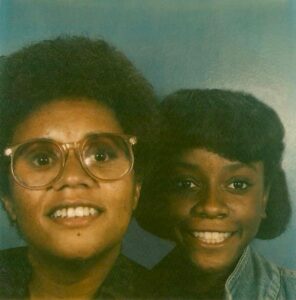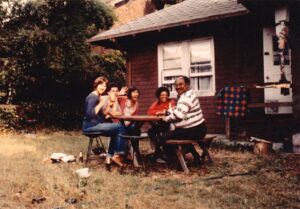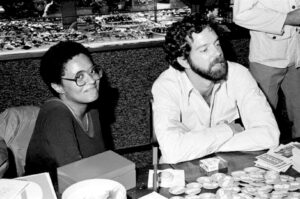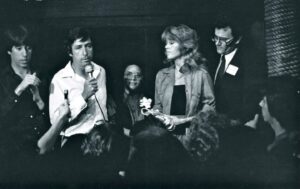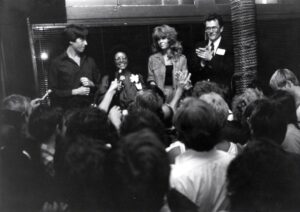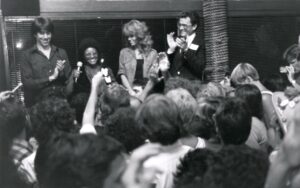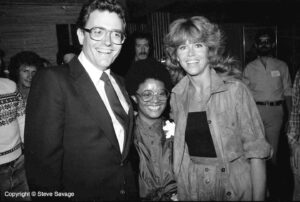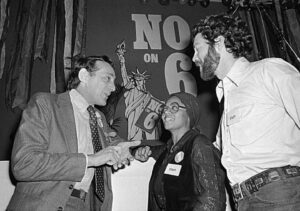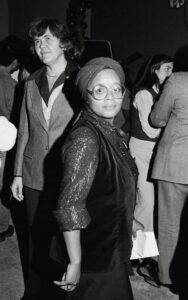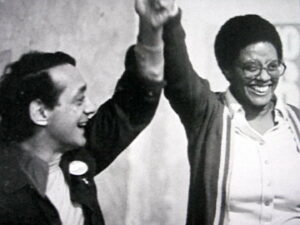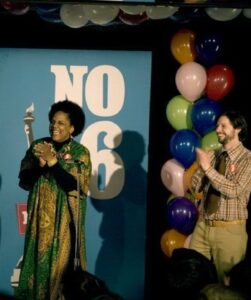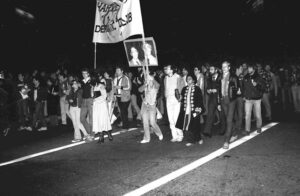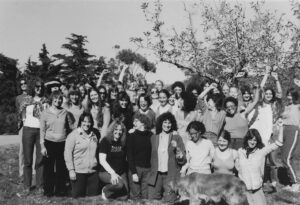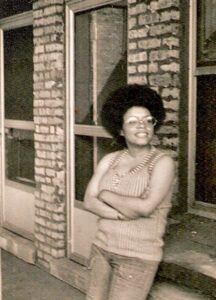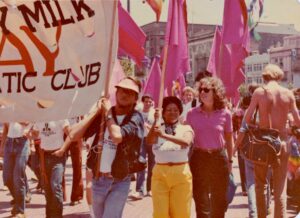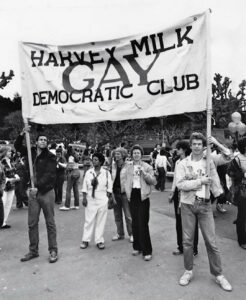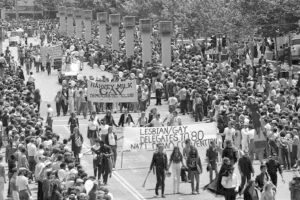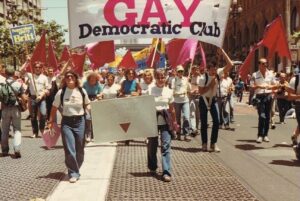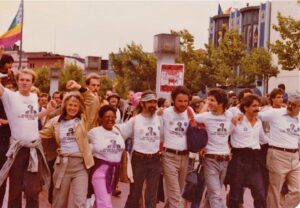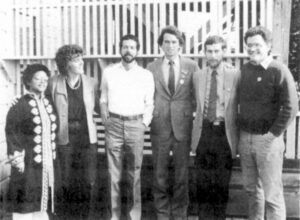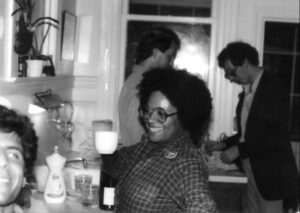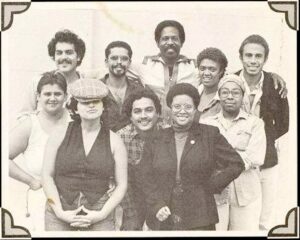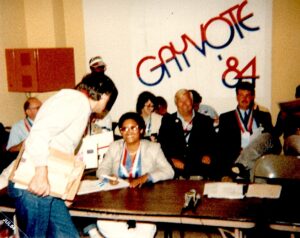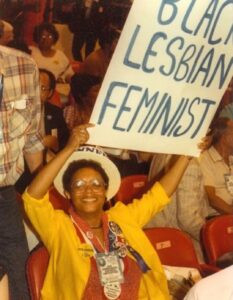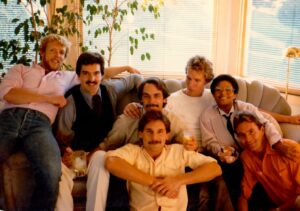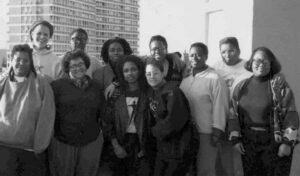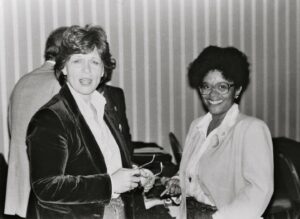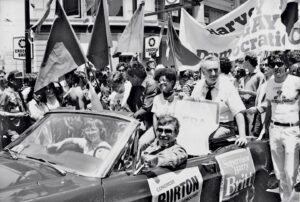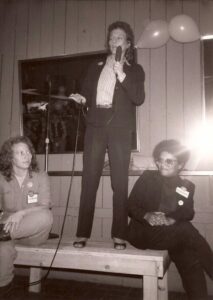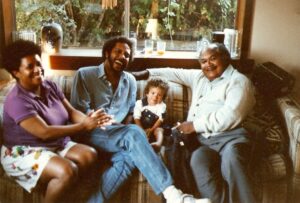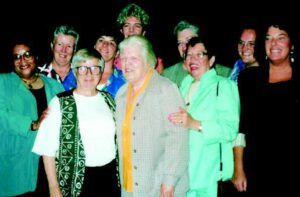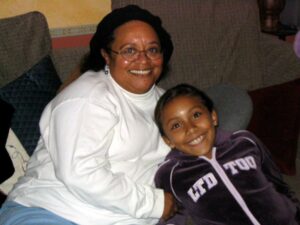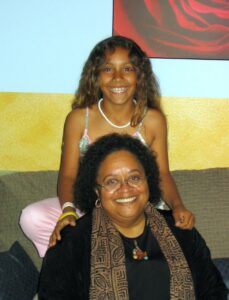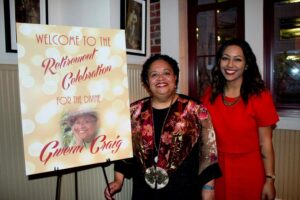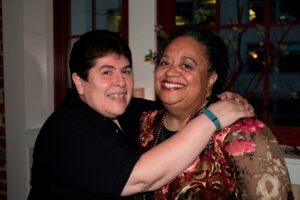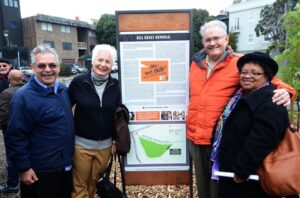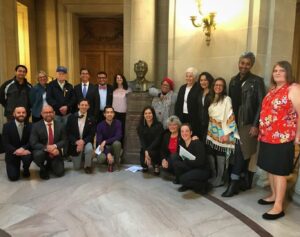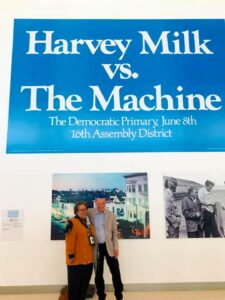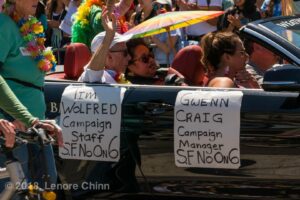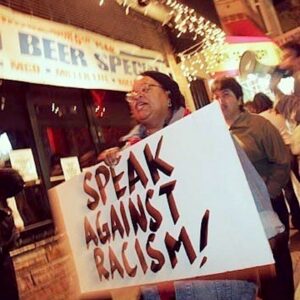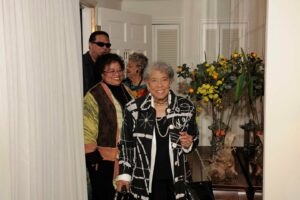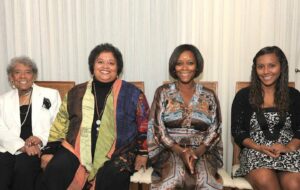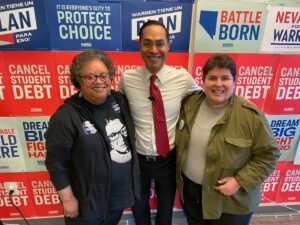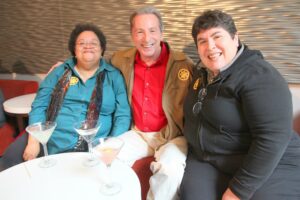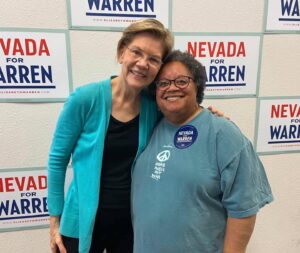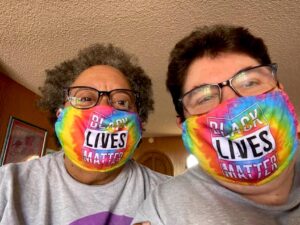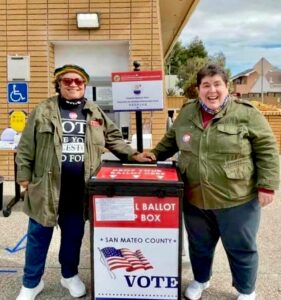Gwenn Craig was born on April 14, 1951 in Atlanta, Georgia. She grew up on the Gammon Theological Seminary campus where her father worked as a librarian. Her parents were deeply involved in the Black civil rights movement and shared mutual friends with Martin Luther King. The family passion for political activism was contagious. In the 8th grade, Gwenn led a “Leave Percy Alone” campaign at school to confront students for bullying a classmate, and at 14, Gwenn volunteered for her first political campaign with Maynard Jackson.
In 1968, struggling with immense fear and shock after the assassinations of both Martin Luther King and Bobby Kennedy, she left her hometown as far behind as possible to attend college in Chicago, where she grew interested in the Democratic National Convention and began exploring her Black identity. During this time, she met her daughter’s father and became a single mother. As she started making plans to leave Chicago for San Francisco, her parents offered to raise her daughter in Atlanta; Gwenn, wanting to give her daughter a stable upbringing, agreed. In 1975, she drove to San Francisco with a gay male friend, and the two moved to the Castro together. Gwenn started coming to terms with her own lesbian identity as she explored lesbian coffeehouses, made lesbian friends, and surrounded herself with other queer people.
A year later, Anita Bryant’s campaign in Florida accusing queer people of being molesters and pedophiles blew up, and Gwenn became determined to smash the false propaganda. At a public meeting, she insisted so firmly that they needed a strong media campaign that the other meeting attendees exasperatedly elected her media coordinator. Thrust into this role, Gwenn sought out mentorship in Harvey Milk, who trained her on the spot to navigate the TV, radio, and newspaper networks within San Francisco.
Gwenn put her newfound knowledge to the test when local resident Robert Hillsborough was murdered for being gay, and she successfully publicized the truth of his death by firing out press releases, connecting the dots between deadly hate crimes and the anti-gay sentiments in political campaigns like Anita Bryant’s. In 1978, when the Briggs Initiative was proposed to remove gay and lesbian teachers from their jobs in California public schools, Gwenn helped Harvey with door-to-door canvassing, covering every neighborhood in San Francisco. She often went on TV as an openly lesbian Black woman and was seen across the nation. Ultimately, the Briggs Initiative was defeated.
Through Harvey, Gwenn connected with congressman Phil Burton and became inspired to foster a strong connection with the Democratic Party. Harvey saw hope in building this connection, and despite being devastated when he was assassinated, Gwenn carried on his work. She was a delegate in the DNC from 1980-84 and remained involved in the Harvey Milk LGBTQ Democratic Club for years. She also helped form the Black caucus, or Lesbians and Gays of African Descent for Democratic Action (LGADDA), within the Harvey Milk club.
To this day, Gwenn remains invested in political movements at the local and national level with a determination to continue strengthening the Democratic party. She is committed to putting her voice out there for everyone: to share LGBTQ+ history with younger generations, to show older generations that things have gotten better, and to represent her own generation.

